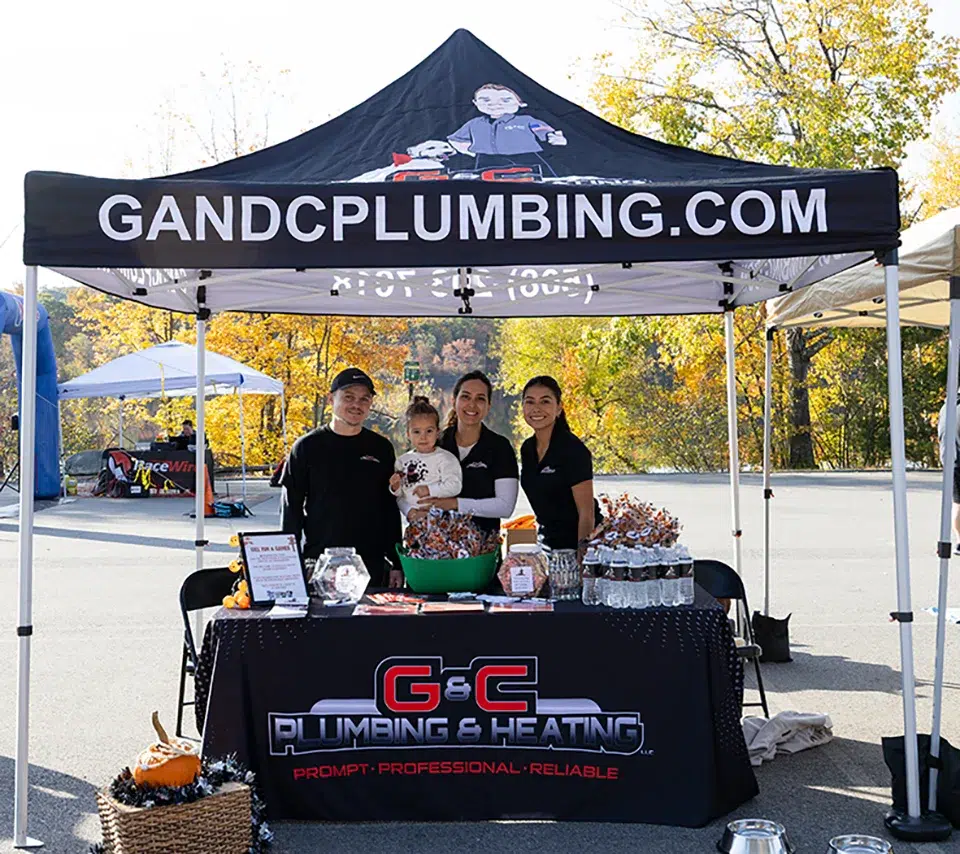
G&C is proud that so many of their customers are experiencing the many advantages from wall-mounted boilers, such as efficiency, comfort and compact dimensions. And, you have to admit, a well-mounted boiler just looks good!
An obvious benefit of a wall-mount boiler is that it is off the ground and potentially at less risk from water damage from flooding. “Mounting the boiler on the wall above the piping provides easy access to install the vent system, which is the most important part of the installation,” said Greg Sheck, Grand Master Plumber from G&C Plumbing and Heating. “Wall-mount boilers are intended to be installed in very confined spaces, freeing up usable space in your basement.”
Why are these boilers so great?
Wall-hanging boilers have two main application choices for making hot water. One is using an indirect water heater as an add-on zone and the other is the increasing popular all-in-one combi boiler.
These units make great choices when considering a system replacement in favor of hydronic heating applications like fan-coils, low-temperature baseboards, or panels. “Wall-mounted boilers can alter their Btu input or change supply water temperature which makes them ideal for homes that have different water temperature needs for different applications,” said Sheck.
When G&C installs a wall-mounted boiler, they recommend performing a heat-loss calculation to determine the appropriate boiler size for a home versus just replacing with the same capacity boiler as the one you want to get rid of. “More times than not, we find older boilers are drastically oversized,” said Sheck
More times than not, we find older boilers are drastically oversized
Like traditional floor units, wall-hanging boilers should be installed inside and fitted to a wall strong enough to hold the unit’s weight when full of water. “The boiler’s flue must be able to pass to the outside, either through an outside wall or through the roof,” said Sheck. His crew is brilliant at finding just the right location.
The boiler’s flue must be able to pass to the outside, either through an outside wall or through the roof
Typically, the guys select an external wall which is usually going to be constructed of a brick and block or in some cases, particularly in older properties, a solid block construction.
G&C never considers internal studwork walls (i.e. plasterboard on a wooden frame), and usually recommends against single skin brick or block walls.
Have questions about wall-mounted boilers?
If you’ve been considering upgrading to a wall-hanging boiler, call the guys at G&C today for more information.
Call (508) 966-8919














